calsfoundation@cals.org
Opie Read (1852–1939)
Opie Read was a newspaperman, author, and lecturer. He cofounded the comic newspaper the Arkansaw Traveler and wrote several successful novels. Arkansas provided much of his education as he worked for three Little Rock (Pulaski County) newspapers: the Arkansas Gazette, the Arkansas Evening Democrat, and the Evening Ledger. His work as city editor and his associations with the state’s antebellum elite provided him with decades of literary material.
Opie Read was born on December 22, 1852, in Nashville, Tennessee, the youngest of eleven children. (His middle name is recorded various sources as either Pope or Percival, with the consensus being that it was like the latter.) His parents were Guilford and Elizabeth Wallace Read. Read’s early life was spent in Gallatin, Tennessee. His formal education was limited, but he read extensively.
After writing his first anonymously published piece for a local newspaper, he learned the printing trade at the Franklin Patriot. He furthered his education by attending classes at Neophogen College in Gallatin while working as a printer. He went on road as a tramp printer in Tennessee and Kentucky before joining friend Harry Warner in Carlisle (Lonoke County). The two edited and published the Carlisle Prairie Flower in 1876. After it collapsed later that year, Read went to Little Rock, where he got an International Typographers’ Union card and became city editor of the Arkansas Democrat. He left after a falling out with owner-editor J. N. Smithee, partly because of Read’s habit of embellishing his stories and partly because of his description of the so-called “last duel in Arkansas,” between Smithee and John D. Adams, in terms unflattering to Smithee.
Read earned a national reputation covering the 1878 outbreak of yellow fever in Memphis, Tennessee, for the New York Herald. He also worked for the Louisville Courier-Journal and the Cleveland Leader before returning to Little Rock where he became city editor of the Arkansas Gazette. Read spent much time there among the state’s antebellum elite. He continued to write sketches, on one occasion inventing the death of veteran state politician Bradley Bunch, who was quite alive.
In 1882, Read and Philo D. Benham founded the Arkansaw Traveler. It soon had a national audience for its folksy material, but many in Arkansas were critical of the image it suggested. Read moved the paper to Chicago in 1887 and retired from it in 1893. He also married Benham’s sister, Ada, in 1879 and had eight children, two of whom died in infancy.
Starting with Up Terrapin River (1888), Read wrote a string of highly successful novels and short stories that he populated with Southern character types: the ex-planter, the old judge, the northern businessman, the liberated woman, and African Americans were all woven in specific geographic settings, most commonly Arkansas, Tennessee, or Kentucky. In two of his Arkansas works, he applied his expertise in newspaper lore: Len Gansett (1889) and Emmett Bonlore (1891) differed by contrasting the country weekly with the urban daily.
Read’s family had owned slaves, and Read might be described as an enlightened paternalist who had no use for the age’s rising racism. In some of his shortstories, African Americans had their own voices. His novel My Young Master (1896) had a slave narrator.
Mostly, he wrote of his own time and described how modernization, which he often saw as evil, came to the South. His last novel, The Gold Gauze Veil (1927), used his longtime friend Alice French (Octave Thanet to readers) as a character.
Read was an active lecturer and Chautauqua performer and appeared in the 1920 five-reel silent film Birthright. Tall and gangly, Read had a whimsical style much like that of his friend Mark Twain. Both shared a strong commitment to morality and principles matched by an unflattering assessment of orthodox religion. In his heyday, Read was one of the best-paid novelists in America. A noted golfer, fisherman, and poker-player, he once in a poker game traded away his future royalties from a book in exchange for $700 so that he could continue playing—those royalties amounted to more than $50,000.
Read died after a fall on November 2, 1939 in Chicago. In accordance with his instructions, he was cremated. Obituaries appeared not only in Chicago and Little Rock but also across the nation. “His name,” the New York Times intoned, “was inseparable from Arkansas.” Read was little read after his death. “He wrote something that everybody read but nobody remembers,” critic Shirley M. Mundt observed. However, several of his novels have been reissued since 1987.
For additional information:
Dougan, Michael B. “Local Colorists and the Race Question: Opie Read and Octave Thanet.” Publications of the Arkansas Philological Association 9 (Fall 1983): 26–34.
Morris, Robert L. Opie Read, American Humorist. New York: Helios Books, 1965.
Mundt, Shirley M.. “Opie Read.” Dictionary of Literary Biography, 1873–1900. Vol. 23. Detroit: Gale Research Co., 1983.
Read, Opie. I Remember. New York: Richard R. Smith, 1930.
Michael B. Dougan
Jonesboro, Arkansas

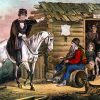


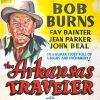
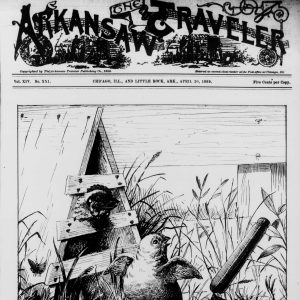 Arkansaw Traveler
Arkansaw Traveler 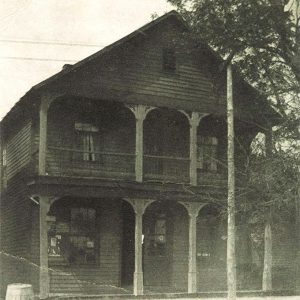 Read House
Read House 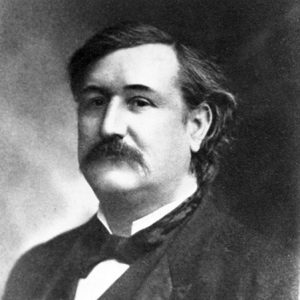 Opie Pope Read
Opie Pope Read 



Comments
No comments on this entry yet.